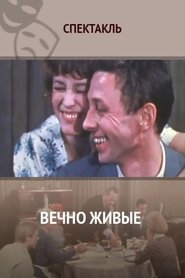detail profile yuri bogatyryov

Yuri Bogatyryov
Yuri Bogatyryov
atau dikenal sebagai
Riwayat Hidup
Yuri Bogatyryov was a renowned Soviet actor born on March 2, 1947, in Riga, Latvia.
He graduated from the Moscow Art Theatre School in 1968 and quickly became one of the most celebrated actors of his generation.
Bogatyryov is best known for his collaborations with director Nikita Mikhalkov, including standout performances in films such as "Slave of Love" (1976), "An Unfinished Piece for Mechanical Piano" (1977), and "Five Evenings" (1979).
His role in the 1981 film "Kinfolk" further solidified his reputation as a versatile and compelling actor.
Bogatyryov's talent extended to the stage, where he performed at the Sovremennik Theatre.
Tragically, his life was cut short when he died on February 2, 1989, in Moscow.
Despite his untimely death, Yuri Bogatyryov remains a significant figure in Soviet and Russian cinema.
Info Pribadi
Peran Yang Di Mainkan Yuri Bogatyryov
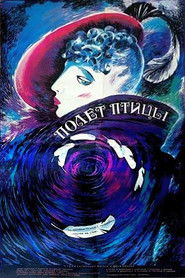 Thirties Arriving from a provincial town...
Thirties Arriving from a provincial town...Bird Flight 1989
Thirties. Arriving from a provincial town in Moscow, Leka Khrapova did not enroll in law school, as her mother wanted, but entered acting. During her studies, she became interested in the “stargazer” and the sensualist from the observatory, but married a silent and reliable documentary cameraman. Leka left her husband twice and, burned by her mistakes, returned. But one day she didn’t return...
 After the concert the popular singer...
After the concert the popular singer...Presumption of Innocence 1988
After the concert, the popular singer, having boarded the train, discovers that her jacket is missing, and with it her passport, according to which she must go abroad on tour. Two stowaways, posing as police officers, undertake to help the singer.
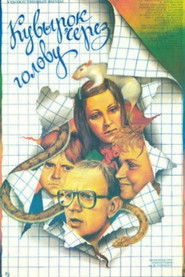 Heroes of this movie are cat...
Heroes of this movie are cat...Roll over Your Head 1987
Heroes of this movie are cat, dog, two birds, snake and also ten years old girl named Anya...
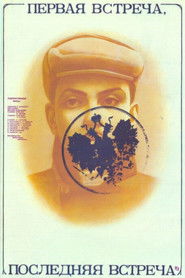 The story concerns the events in...
The story concerns the events in...First Encounter - Last Encounter 1987
The story concerns the events in Saint Petersburg on the eve of the First World War. Private detective Petya Chukhontsev, a law student who has not completed his studies, investigates the case of the murdered inventor Kuklin. He was murdered exactly as he predicted during a New Year's visit to Chukhontsev. While investigating the Kuklin case, Petya soon realizes that the central figure in this case is the German Scholz, the owner, who cheaply buys up the inventions of Russian craftsmen and hands them over to the spy Siegfried Gay, an advisor to the German embassy. . However, Petya will soon understand that it is better to mind his own business...
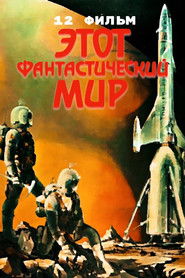 Based on science fiction stories about...
Based on science fiction stories about...This Fantastic World 12 1987
Based on science fiction stories about the relationship between man and robot: A. Belyaev’s “Open Sesame” about how a robot servant robbed two old men; A. Azimova's "Liar" about a robot who can read minds and turns out to be the most humane among people; F. Chilander's "Court" about how robots tried the last person living in the city.
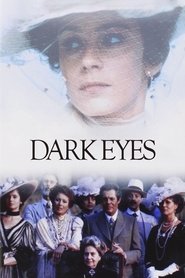 Aboard a ship early in the 20...
Aboard a ship early in the 20...Dark Eyes 1987
Aboard a ship early in the 20th-century, a middle-aged Italian tells his story of love to a Russian.
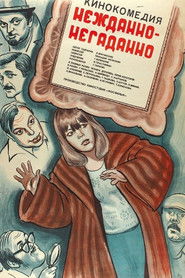 A young and humble girl who...
A young and humble girl who...Unexpected, Unforeseen 1982
A young and humble girl who works as a clerk suddenly inherits the huge and expensive art collection...
 The story follows Maria Konovalova who...
The story follows Maria Konovalova who...Kin 1981
The story follows Maria Konovalova who travels from her rural village to visit her daughter Nina in the city. Maria's arrival exposes the stark contrasts between rural and urban lifestyles and reveals deep-seated family tensions. Interestingly, Родня (Rodnya) in Russian sounds very similar to the word Родина (Rodina), which means "Motherland." The film features three generations of women — Maria, her daughter Nina, and her granddaughter Irina — symbolizing three different Russias: one from the past, one modern, and one representing the future.
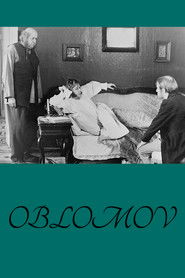 St Petersburg mid 19th century the...
St Petersburg mid 19th century the...Oblomov 1980
St. Petersburg, mid 19th century: the indolent, middle-aged Oblomov lives in a flat with his older servant, Zakhar. He sleeps much of the day, dreaming of his childhood on his parents' estate. His boyhood companion, Stoltz, now an energetic and successful businessman, adds Oblomov to his circle whenever he's in the city, and Oblomov's life changes when Stoltz introduces him to Olga, lovely and cultured. When Stoltz leaves for several months, Oblomov takes a country house near Olga's, and she determines to change him: to turn him into a man of society, action, and culture. Soon, Olga and Oblomov are in love; but where, in the triangle, does that leave Stoltz?
 The main character is a talented...
The main character is a talented...A Declaration of Love 1978
The main character is a talented, but timid writer of the Filippok experiencing with his country the difficult years of revolution, devastation and war. Adversity helps him overcome the unrequited and faithful love for the widow of Commissioner Zinochka, who bossily manages his career, not hesitating to start novels with other men. Filippok will describe the story of his life in a book that at the end of days will be presented by a terminally ill, but still dearly beloved wife, with gratitude for the experience.
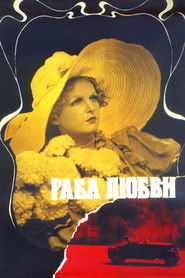 During the Russian Civil War the...
During the Russian Civil War the...A Slave of Love 1976
During the Russian Civil War, the production of a silent melodrama runs into numerous complications.
 Following the Russian Civil War a...
Following the Russian Civil War a...At Home Among Strangers, a Stranger Among His Own 1974
Following the Russian Civil War, a loyal Red, Shilov, must prove he is at home among strangers as he attempts to recapture a shipment of gold that he was supposed to deliver to Moscow. Needed as a means of buying food for the people, the gold Shilov was entrusted with is stolen, initially by a group of assassins and then by a group of bandits. In tracking the gold’s whereabouts, Shilov’s motives are questioned and he is suspected of treason, in part because his brother was a devoted White. In an effort to clear his name, Shilov locates the gold, but he also discovers rampant greed and corruption.
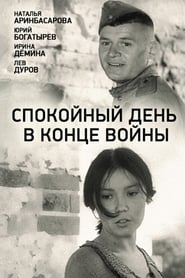 As WWII comes to a close...
As WWII comes to a close...A Quiet Day at the End of the War 1970
As WWII comes to a close, a wounded Soviet soldier and a Kazak woman seek refuge in a church. In this holy place, they take time to rest and appreciate the beauty of their surroundings, as the interior of the building is lined with ornate works of art. A group of Nazi soldiers eventually disrupts this moment of peace, as they enter the church and defile the sacred works within. Undetected, the original occupants witness this atrocity and the proud Russian feels compelled to fight in an effort to preserve his country’s history.
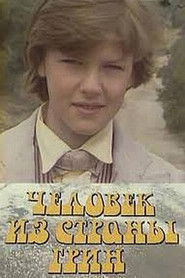
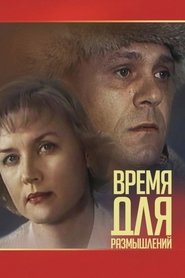
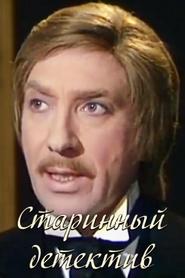 With the help of observation the...
With the help of observation the...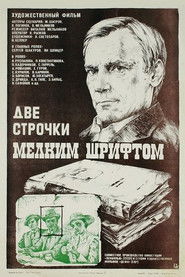
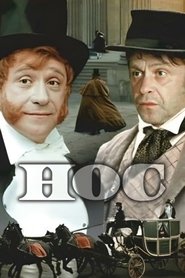 A fantasy about an official whose...
A fantasy about an official whose...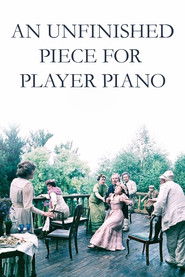 On a summer day in late 19...
On a summer day in late 19...